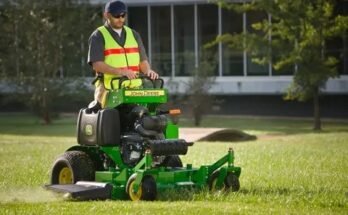Security Guard Jobs in the USA
In an increasingly uncertain world, the demand for security services has grown significantly, making security guard jobs a stable and essential profession across the United States. Security guards play a crucial role in protecting people, property, and information, ensuring safety in various environments such as residential complexes, retail stores, corporate offices, and public venues. This blog article explores the landscape of security guard jobs in the USA, including the types of positions available, skills required, career prospects, and the benefits and challenges of this profession.
1. The Security Industry Landscape in the USA
The security industry in the United States is vast and diverse, encompassing various sectors, including private security, public safety, and emergency services. According to the U.S. Bureau of Labor Statistics (BLS), as of 2021, there were approximately 1.1 million security guards employed in the country, with the job outlook projected to grow by 3% from 2021 to 2031, which is about as fast as the average for all occupations. This growth is driven by the increasing need for security in residential, commercial, and public spaces due to heightened concerns about crime, terrorism, and safety.
1.1 Types of Security Guard Jobs
Security guard jobs can vary widely based on the environment and the level of responsibility required. Here are some common types of security guard positions:
a. Unarmed Security Guards
Unarmed security guards provide a visible security presence in various settings, such as shopping malls, schools, hospitals, and residential communities. They monitor the premises, greet visitors, and ensure compliance with safety regulations.
- Responsibilities: Patrolling designated areas, monitoring surveillance systems, providing customer service, and reporting suspicious activities.
b. Armed Security Guards
Armed security guards have additional training and licenses to carry firearms. They typically work in high-risk environments, such as banks, jewelry stores, and certain government facilities, where the potential for crime is higher.
- Responsibilities: Responding to incidents that may require the use of force, protecting valuable assets, and maintaining a high level of situational awareness.
c. Corporate Security Guards
Corporate security guards are employed by companies to protect their facilities, employees, and assets. They often work in office buildings, manufacturing plants, and warehouses.
- Responsibilities: Monitoring access control systems, conducting investigations into theft or vandalism, and implementing emergency response plans.
d. Event Security Guards
Event security guards are hired for specific events such as concerts, sporting events, and conventions. Their primary focus is ensuring the safety of attendees and preventing disturbances.
- Responsibilities: Screening attendees, managing crowd control, and coordinating with local law enforcement when necessary.
e. Security Officers
Security officers usually have more extensive training and responsibilities than standard security guards. They may work in specialized roles, such as loss prevention in retail environments or managing security operations for large organizations.
- Responsibilities: Overseeing security personnel, developing security protocols, and coordinating with law enforcement and emergency services.
2. Skills and Qualifications for Security Guard Jobs
While the requirements for becoming a security guard can vary by state and employer, certain skills and qualifications are generally essential for success in this field:
2.1 Basic Requirements
- Age and Background: Most employers require security guards to be at least 18 years old. A background check is often conducted to ensure a clean criminal record.
- Education: A high school diploma or GED is usually required, although some employers may prefer candidates with additional education or training.
- Licensing: Many states require security guards to obtain a license, which may involve completing a training program and passing a written exam.
2.2 Essential Skills
- Communication Skills: Effective verbal and written communication skills are essential for reporting incidents, interacting with the public, and collaborating with law enforcement.
- Observational Skills: Security guards must have keen observational skills to notice unusual behavior, identify potential threats, and respond quickly.
- Problem-Solving Abilities: The ability to think critically and make decisions under pressure is crucial for handling emergencies or security breaches.
- Physical Fitness: Security work can be physically demanding, requiring guards to be in good shape to perform their duties effectively.
- Technical Skills: Familiarity with security technology, such as surveillance cameras and alarm systems, is becoming increasingly important in the field.
3. Career Opportunities and Advancement
Security guard jobs offer various opportunities for career advancement, depending on experience, skills, and training. Here are some potential career paths for those in the security field:
3.1 Specialized Roles
Many security guards choose to specialize in specific areas, such as loss prevention, corporate security, or emergency response. Specialized training and certifications can open doors to higher-paying positions and more responsibilities.
3.2 Supervisory Positions
With experience, security guards can advance to supervisory roles, where they oversee teams of security personnel, develop security policies, and manage day-to-day operations.
3.3 Management Positions
Experienced security professionals may move into management roles, where they are responsible for the overall security strategy for a company or organization. This can include budgeting, policy development, and coordination with law enforcement.
3.4 Consulting and Training
Some security professionals transition into consulting roles, providing expertise to organizations on security best practices, risk assessments, and emergency preparedness. Others may choose to become trainers, educating new security personnel on industry standards and practices.
4. Benefits of Being a Security Guard
Working as a security guard comes with several benefits that make it an attractive career choice for many individuals:
4.1 Job Stability
The consistent demand for security services across various industries ensures a level of job stability. As concerns about safety continue to rise, the need for trained security professionals will likely remain high.
4.2 Flexible Work Hours
Many security jobs offer flexible scheduling, making it possible to find positions that fit your lifestyle. Security guards may work full-time, part-time, or on a shift basis, allowing for greater work-life balance.
4.3 Opportunities for Skill Development
Security guard positions provide opportunities to develop valuable skills that can be applied in various fields, including communication, conflict resolution, and emergency response.
4.4 Networking Opportunities
Working in security allows for networking with other professionals, law enforcement, and community members. Building these connections can lead to future job opportunities or collaborations.
4.5 Contribution to Community Safety
Many security guards take pride in their role as protectors of their communities. Working in this field can provide a sense of fulfillment, knowing that you are contributing to the safety and well-being of others.
5. Challenges of Being a Security Guard
Despite the benefits, working as a security guard also comes with its share of challenges:
5.1 Potential for Conflict
Security guards may encounter aggressive individuals or high-stress situations, which can pose risks to their safety. Effective training in conflict de-escalation and emergency response is essential.
5.2 Long Hours
Some security positions require long hours or overnight shifts, which can be physically and mentally demanding. This schedule may not be suitable for everyone.
5.3 Low Starting Pay
While the pay for security guards can increase with experience, starting salaries may be relatively low, especially for unarmed guards. This can be a barrier for those entering the field.
5.4 Limited Advancement Opportunities
In some cases, advancement opportunities may be limited, particularly in smaller companies or organizations. This can lead to job dissatisfaction for those seeking career growth.
5.5 Emotional Stress
The nature of security work can be emotionally taxing. Constant vigilance and the responsibility of ensuring safety can lead to stress and burnout.
6. How to Find Security Guard Jobs in the USA
If you’re interested in pursuing a career as a security guard, here are some effective strategies for finding job opportunities:
6.1 Job Boards and Websites
Online job boards such as Indeed, Monster, and Glassdoor regularly list security guard job openings across the country. These platforms allow you to search for positions based on location, experience level, and job type.
6.2 Company Websites
Many security firms and organizations post job openings directly on their websites. Research local security companies or larger firms to find available positions.
6.3 Networking
Leverage your network to learn about job openings. Connect with friends, family, or acquaintances in the security industry, as they may have insights or recommendations for available positions.
6.4 Local Employment Agencies
Consider reaching out to local employment agencies that specialize in security positions. They can assist in finding job opportunities and provide valuable advice on navigating the application process.
6.5 State Licensing Boards
Many states have licensing boards that list registered security companies. Contacting these organizations can provide leads on job openings and information about the licensing process.
7. Preparing for a Career as a Security Guard
If you’re ready to pursue a career as a security guard, here are some steps to help you prepare:
7.1 Research Requirements
Before applying for positions, research the licensing and training requirements in your state. This information will help you understand what is necessary to enter the field.
7.2 Complete Training
Consider enrolling in training programs that provide the skills and knowledge needed for security work. Many community colleges and vocational schools offer courses in security training.
7.3 Obtain Certifications
Look into obtaining certifications relevant to the security field. Certifications in areas such as CPR, first aid, or specific security training can enhance your qualifications.
7.4 Build a Strong Resume
Tailor your resume to highlight your skills and experiences related to security. Be sure to include any relevant training, certifications, and previous job experiences.
7.5 Prepare for Interviews
Practice common interview questions and scenarios you might encounter in the security field. Employers often look for candidates who can demonstrate strong problem-solving skills and a calm demeanor in stressful situations.
Security Guard Jobs in the USA
Security guard jobs in the USA offer a diverse and stable career path for individuals seeking to make a difference in their communities. With various opportunities available, from unarmed positions to specialized roles, security work can provide fulfilling and rewarding experiences. By developing the necessary skills, obtaining certifications, and actively seeking job opportunities, you can build a successful career in the security industry. Whether you are just starting or looking for advancement, the future of security guard jobs in the USA looks promising, providing essential services in a world that prioritizes safety and protection.



